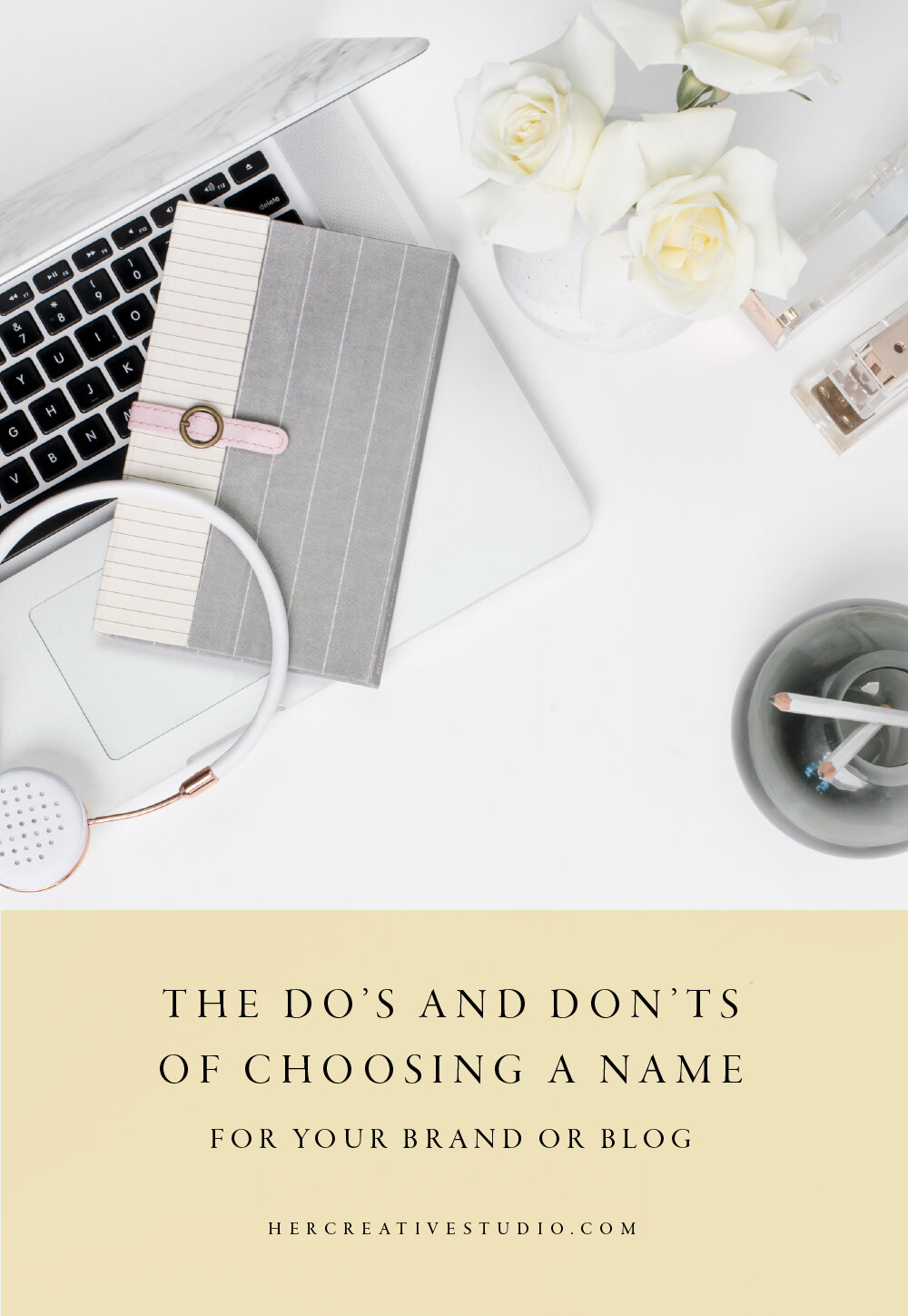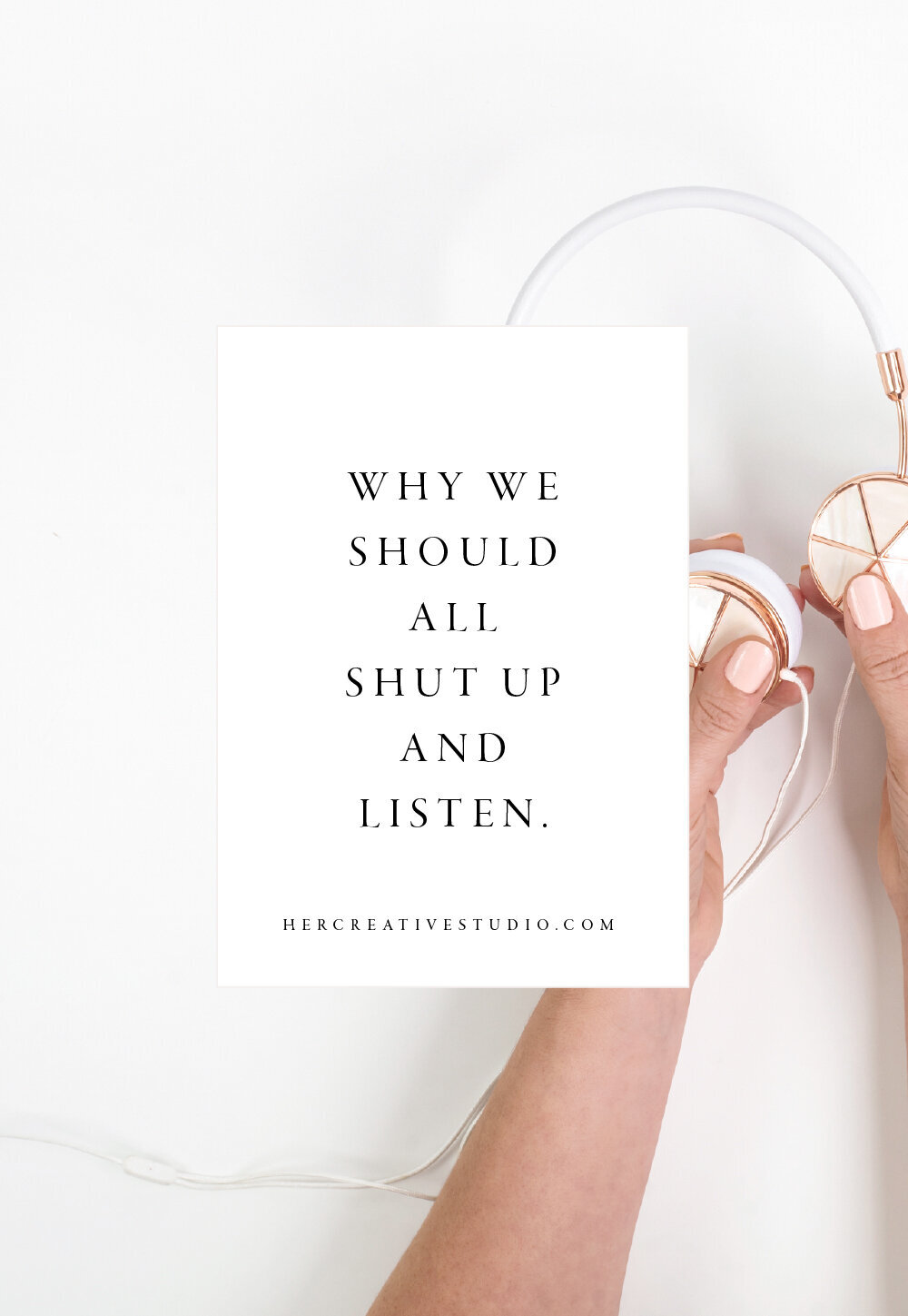The Do's and Don'ts of Choosing a Name
One of my biggest struggles with this entrepreneurial life has always been choosing a name. Whether it’s for my brand, my blog or a new styled stock collection. I groan just thinking about it. Hours lost, hair pulled and loved ones driven crazy with the long list of names to consider, all in the pursuit of the perfect name. I’ve never really found an easy step by step formula to finding the 'perfect ' name but I think there are some really important do’s and don’ts that go into the process you should consider. Here’s my thoughts on the subject.
The Do’s
The Basics
Make sure that the name sounds good. This may seem obvious but it’s important to remember that what we think sounds good may not sound good to others. Difficult pronunciations and obscure spelling for example, will make it difficult for anyone to remember you, confuse your audience and could ultimately hurt your brand.
When trying to decide on a name you could consider any of these three attributes:
The name conveys a benefit or a personality (Fido, Apple)
The name is specific to your industry. (Chapstick, Pizza Pizza)
Make it interesting. (Anthropology, lululemon)
TIP: use google keywords to help you create a name based on searchable words for your industry.
Tell Your Story
Having a story behind your business name can go a long way in making you relatable to your followers, clients or readers. It creates authenticity and builds an important connection between you and your audience. Your story can help them remember your brand and it’s a great way to introduce your core values to the world.
Make it a Verb
Turning your name into a verb is such a great way to create a community and be remembered. Oprah is a great example of this. Her production company Harpo refers to their loyal followers as ‘Harponians’. Another great example known worldwide is Google. Who hasn’t used the phrase ‘just google it’? In the world of marketing, that is priceless.
Getting a Domain
Whatever name you choose make sure you can get a domain to match. This can be a bit of a balancing act. You will want something unique for distinction and availability but you need something memorable and searchable.
The Don’ts
The Basics
Don't be too generic. The last thing you want is to be one of a thousand people with the same name but with a different variation. You will likely be found in searches but so will all your competition.
Don't follow a trend unless it's perfect for your type of business and make sure it’ll not become dated when that trend fades.
Changing the spelling
Changing the spelling of a word for your business name creates three potential problems. It becomes hard to remember, its unsearchable on google (or any search engine) and it can very quickly become outdated. That doesn’t mean it won’t work great for you but it may mean you will need to work twice as hard to market it effectively.
There is an exception to this rule. If misspelling a word actually helps with the pronunciation then that could be a great formula for success!
Combining Words
Combining two words together to create a third non existent word has worked for companies like Walmart, Netflix or Lululemon but it's not always a good idea. You run the risk that it will sound forced or odd and they are almost always impossible to remember unless you have a million dollar budget to market it.
Using your own name
This can be the toughest decision to make when you are creating your brand. Entrepreneurs, educators, bloggers and creatives like us are dominating the work force and it has become a very popular trend to use your name for your brand. Again, there is no wrong answer but to help you decide, I have outlined some positives and negatives for using your name as your brand.
The positives
You can build on your own personal reputation. Especially if you already have an established personal blog or social media accounts with large organic followers. Transitioning to your new brand will be much easier in this case.
If your name is unique and easy to pronounce then it could set you apart from your competition. Three great examples of successful women who have used their names are Emily Ley, Melanie Duncan and Marie Forleo.
Using your name is a confidence building choice and it proves your commitment and passion in what you do. It builds trust and credibility because they see the person behind the brand. You, as a brand, are more relatable and using your name encourages transparency. People are almost always more loyal to people then to a faceless business.
The negatives
If you have a long, complicated or hard to pronounce name. Again, obvious but worth mentioning. It won't define what your business is about, may not be easily remembered and will make it hard to be found on searches.
When planning for the future, having your name as your brand could be a problem. If you ever sell your company then control of what is being sold under your name is in someone else's hand.
I hope this list of do's and don'ts helps in your process of choosing a name! If you have any advice or a story to share about naming your business tell us in the comment section! We'd love to hear it!





